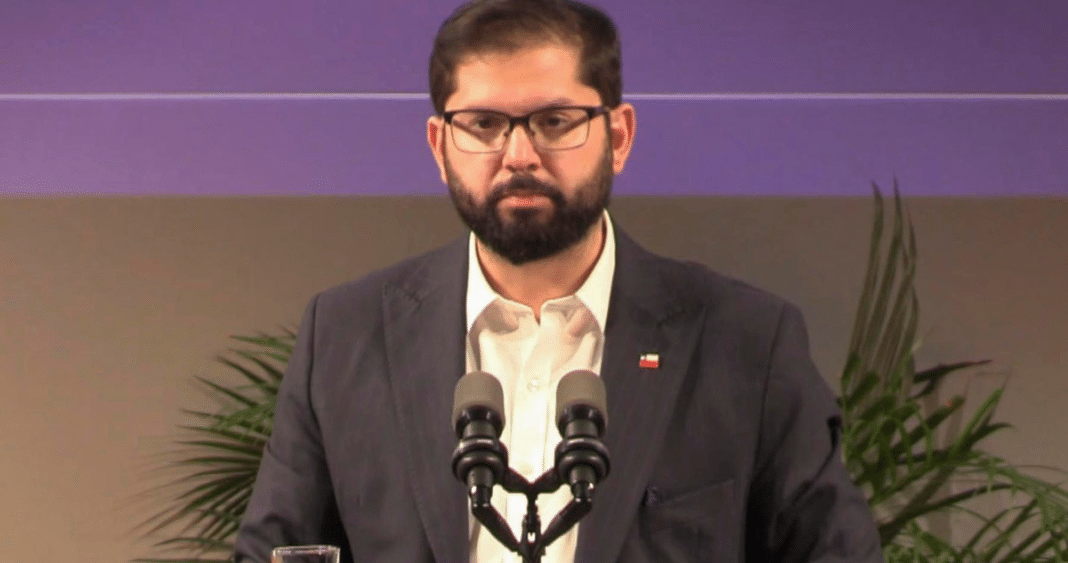Boric Confronts the ‘Far-Right’ Amid Criticism of Multilateral Institutions
During his visit to Europe, President Gabriel Boric has once again launched a scathing attack on the so-called ‘far-right’ in Chile. In a speech at the University of Stockholm, Sweden, Boric emphasized the importance of scientific diplomacy and the UN’s Sustainable Development Goals (SDGs), which he sees as being challenged by the rise of extremist movements around the world, including in Chile.
Entering the realm of scientific diplomacy… there is another very important aspect, the work we are doing is also within the framework of the SDGs. The SDGs are the Sustainable Development Goals, which were developed by the United Nations with a view to 2030,
the President stated.
Boric expressed his concern about the rise of far-right movements and their questioning of the effectiveness and necessity of multilateral institutions. He argued that these critics often ridicule the ‘anti-UN’ agenda and specifically oppose the SDGs, the 2030 Sustainable Development Goals
.
Confronting Denialism and Questioning of Science
The President went on to say that when one asks those who vociferate against these institutions, they have no idea what the SDGs are
, but he believes that scientific diplomacy is tremendously important in these times of denialism and questioning of science.
Boric also shared a conversation he had with the President of Bavaria, who told him that there were some politicians in Germany who insisted that the earth was flat… Something we are seeing with concern in different parts of the world, and therefore, scientific diplomacy acquires a tremendously important value that I want to convey to you because your role is not to be in ivory towers, as some may think of universities, but also to disseminate the work you do.
Conclusion
President Boric’s strong stance against the ‘far-right’ and his defense of multilateral institutions and scientific diplomacy reflects his commitment to addressing the challenges posed by the rise of extremist movements and the questioning of established scientific and political frameworks. As he continues his European tour, Boric’s message is clear: the pursuit of sustainable development and the promotion of scientific knowledge are crucial in these turbulent times.




